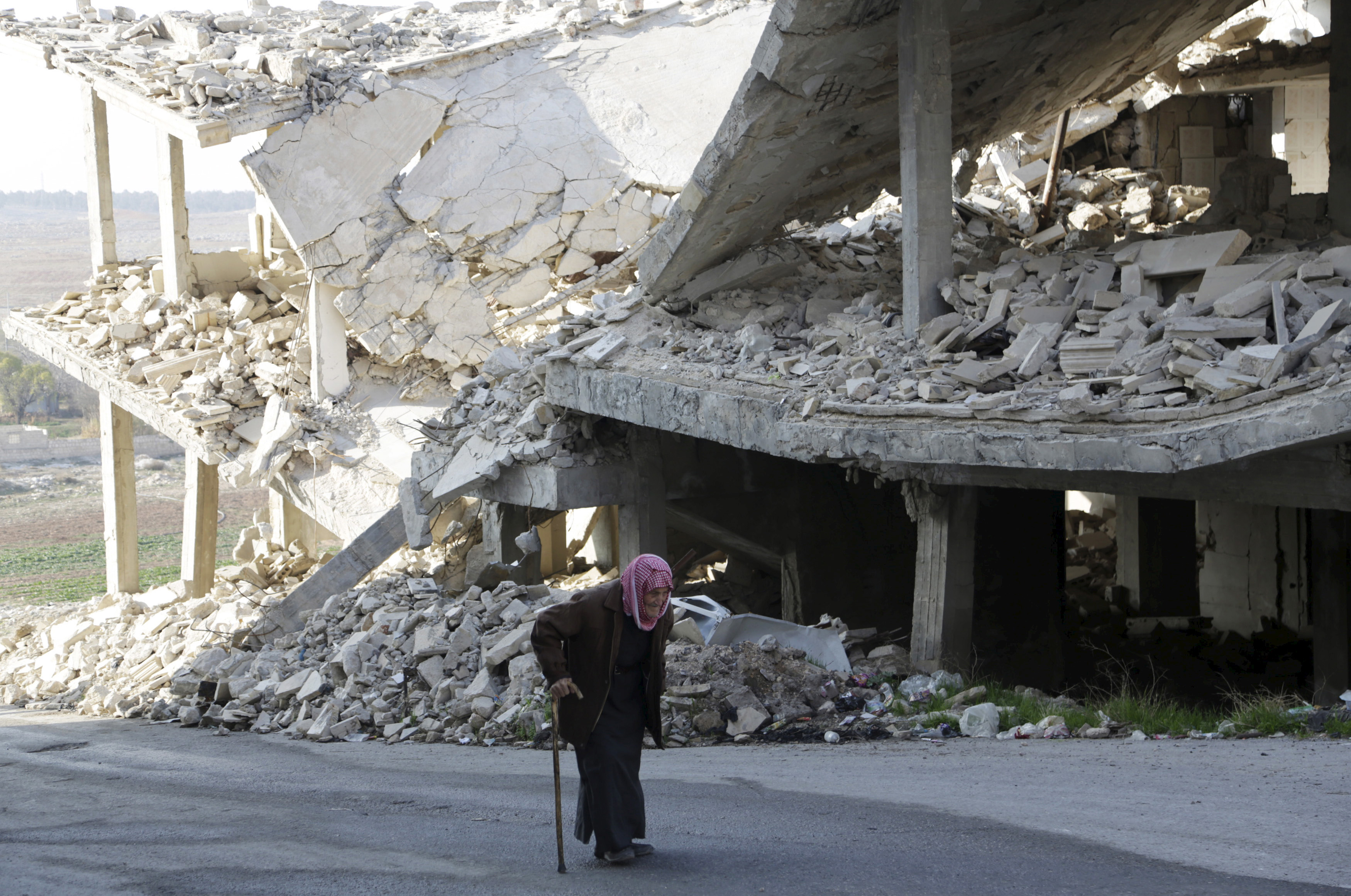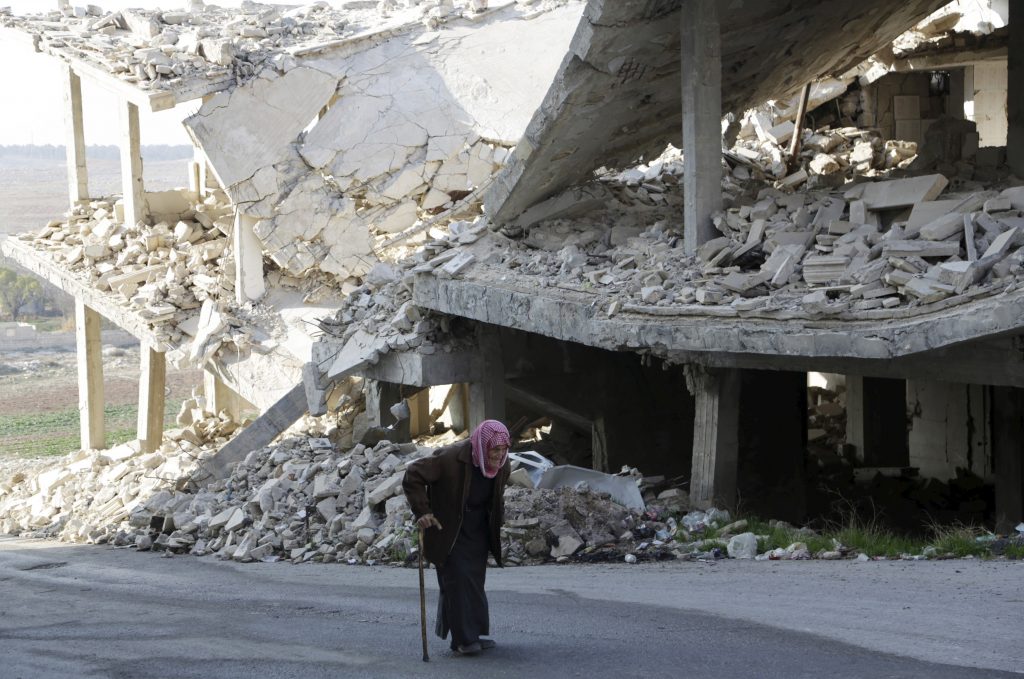
Americans more fearful of terrorism now than at any time since 9/11, says Atlantic Council’s Barry Pavel
As 2015 draws to a close, our experts take a look back at the year that was and look ahead to 2016.
This interview is part of a series.
Barry Pavel is the Vice President, Arnold Kanter Chair, and Director of the Atlantic Council’s Brent Scowcroft Center on International Security.
Q: What was the biggest story you followed in 2015?
Pavel: The broadest, most important set of security developments in 2015 was the continuous, slow breakdown in global order, most prominently manifested in three critical regions, but with implications across regions and in particular for the United States.
The deepening turbulence in the Middle East, Asia, and Europe appears to be proceeding at such a rapid pace that astute observers are growing increasingly concerned about where these trends may lead even by the time of the presidential election in November.
In the Middle East, in addition to deterring hostile Iranian activities and ensuring the most effective possible implementation of the Iran nuclear accord—very significant challenges in and of themselves—the Obama administration has had to deal with a series of unexpected and, in many ways, unprecedented global terrorist attacks directed or inspired by ISIS during the course of the year, culminating (to date) in the Paris and San Bernardino attacks. The new evolution of the global terrorist threat has made the American people more fearful of terrorism than at any time since 9/11. To make matters worse, while ISIS appears to be under significant, new military pressure in Syria and Iraq as a result of the increased tempo of the coalition air campaign combined with local ground force operations, their base appears to be evolving and metastasizing as they grow in strength in Libya and other countries in the region.
Across a broad front in Europe, Russia, too, is continuously assaulting the values undergirding the US-led global order that was established in the aftermath of World War II. With aggressive military actions and nuclear saber-rattling in northern Europe, the Baltic Sea, the Black Sea, along the American coastlines, and in the sovereign territory of Ukraine, Russia is making clear that the immediate post-Cold War European order is now history, and a new era of competition, friction, and potentially military crisis and conflict is upon us. This comes at a time when Europe is far from recovered from the global financial crisis, and when an historic, massive, and sustained influx of refugees from the Middle East and North Africa is fraying Europe’s societies and polities and challenging its common values.
Finally, the rising great power in the East, China, is slowly building new system architectures (e.g., the Asian Infrastructure Investment Bank) and aggressively probing the old ones (e.g., using military force and building artificial islands to assert disputed territorial claims in the western Pacific) as its inherent economic and military power continues to build.
The art of managing such “inflection points” in history such as the period we find ourselves in now is to exert the right kind of global leadership to defend those elements of the existing order that are critical to regional and global security (e.g., the inviolability of national borders) while adapting other elements of the architecture to effectively accommodate rising powers and to give them a stake in the global system. The policy choice of relative moderation and “strategic patience,” which often has been articulated by this administration, is not one that appears likely to work during such an historic period of great dynamism and global change.
Rather, and particularly because all indicators of national power continue to suggest that the United States will remain the world’s strongest single actor, albeit with much less of a margin than in the immediate post-World War II period, this is a period in history that calls for vigorous, activist leadership by the United States, to help adapt and defend the global rules that underpin the entire global economy and regional security.
If the United States chooses not to remain actively engaged in the world and to seek to shape regional developments to the best of its ability, more serious and dangerous security threats look likely to come directly to US shores and to our cities as well as those of our closest allies and partners.
In short, we can choose to engage abroad on the basis of our values and interests, or we can let threats in this globalized world fester and proliferate, until it becomes unavoidable to confront them later.
Q: What is one big story you will be watching closely in 2016?
Pavel: If these trends continue, 2016 looks likely to be the most dangerous last year of a President’s term in recent memory. That means that the new President will have her or his hands very full, dealing with crisis after crisis, unless he or she takes a different approach and gets ahead of crisis management by developing and pursuing a coherent global strategy to modernize and defend the global rules of the road.
When President Barack Obama entered office in January 2009, he also had quite an inheritance to deal with: By necessity, he had to focus on preventing a worldwide economic depression (the economy appeared to be in free fall at the time) and getting a better handle on the simmering conflicts in Iraq and Afghanistan.
The very day after his inauguration in January 2009, Obama had a long and very concerning meeting with his senior economic team, followed by a first meeting with his senior military and defense team. (I know, because as Special Assistant to the President and Senior Advisor for Defense Policy and Strategy on the National Security Council staff, I was a participant in the second meeting.)
On our current pace, the agenda confronting the new President on January 20, 2017, will be even more challenging, at least on the security and defense front. This means that 2016 will turn out to be a critical year in history: Will it be the year that the Obama administration turned the corner, effectively ending the civil war in Syria and Iraq and helping to move those societies and political systems in more inclusive, legitimate directions; making progress in defeating the virulent, global ISIS threat while upping the defense of the US homeland; keeping Iran from further destabilizing the regional order in the Middle East; accommodating China appropriately in the global order but keeping the Chinese military’s coercive activities in check; deterring and dissuading further Russian aggression while supporting Ukraine’s economy and legitimate defensive needs; and helping to keep Europe together as a critical strategic partner for the United States on the global stage?
These are tall orders indeed, but pursuing a values- and interests-driven US strategy for managing a new global order can help manage all of these challenges and move us again toward a safer and more prosperous future.
Follow Barry Pavel on Twitter @BarryPavel and the Scowcroft Center @ACScowcroft.
Image: An elderly man walks past a damaged building in the rebel-controlled Maaret al-Numan town in Idlib province, Syria, on December 21. (Reuters/Khalil Ashawi)

